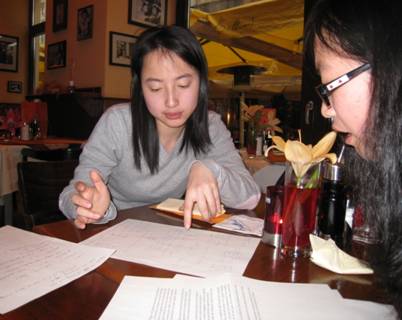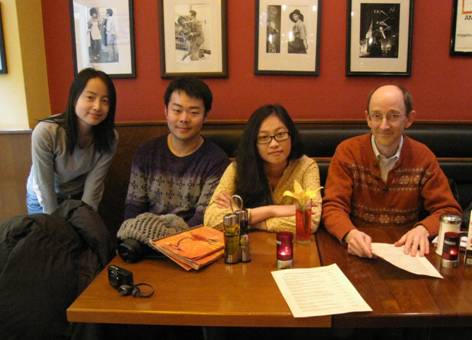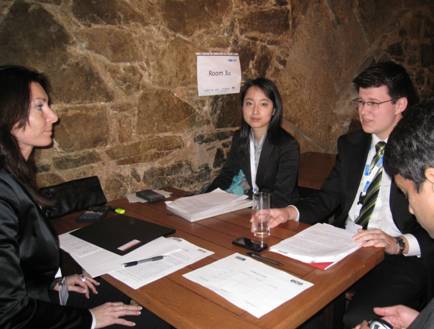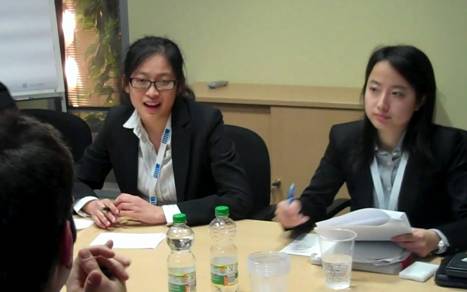The Kyoto 2011 team was able to finish theLeipzig Graduate School of Management’s “The Negotiation Challenge” with honors for their ability in the last and most complex negotiation. The Kyototeam did not finish in the finals, however the team found satisfaction in applyingcreativity and negotiation skills throughout the two day program. All three students were able to build their experience, knowledge, skills, and contacts.
What the team gained
Experience – the team gained experience in dealing with multicultural counterparties in quick moving exchanges with a variety of accents and voices.
Self confidence – managing complex issues in fast paced situations made the team increasingly confident as they progressed.
Contacts – interacting with students and working professionals created new contacts and understanding for the students. Students at TNC came from Germany, USA, France, India, Ghana, Iceland, Norway, and many other countries.
Fluency – speaking and listening throughout the event made the students more fluent in English.
Teamwork – working together made the team members aware of how to construct and coordinate a team.
Kyoto 2011 team members
Team Captain: law student Thitirat Thipramsitkul, a veteran of the INC competition in December 2010.
Chou Tou (張騰) MBA student and veteran of the INC competition in December 2010.
Doris Yang (楊青) MBA student.
All students were selected based on their interest and ability as expressed in a brief essay. These most promising students were chosen from among all the applicants.
Preparation
The students willingly and actively completed a long and complex course of preparation including practices of negotiation and preparation. The preparation was led by Associate Professor Will Baber, Kyoto University Graduate School of Management (准教授、京都大学大学院経営管理).
The students worked with the coach frequently before the event including one meeting in December, three in January, five in February, and four in March averaging 2 hours each for a total of 26 hours of practice, discussion and planning. Additionally we practiced on the plane travelling to Leipzig and in Leipzig before the event. We were kindly joined in practices once by Mr. Kosuga (law student) and several times by Ms. Linda Lee, business person, and Dr. Inga Polec, a Kyoto University post-doc student.
Our practices included preparing for negotiation cases under time pressure (20 minutes) and full negotiations of practice cases.
In summary, the Kyoto students spent many hours in practices than students in a normal 15 week course and they contributed serious effort and ability.
At the event
There was very little information about the four challenges in advance so we prepared as best we could by learning how to:






